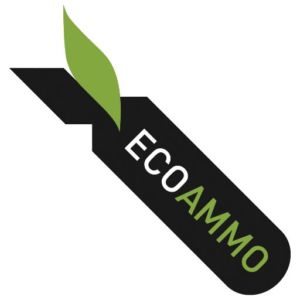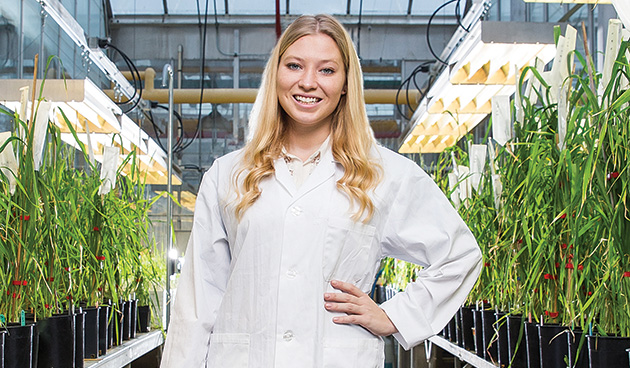[vc_row][vc_column width=”1/2″][vc_column_text]

[/vc_column_text][/vc_column][vc_column width=”1/2″][vc_column_text]
Brandy Burdeniuk
EcoAmmo/ Principal, BDes, Industrial Design, LEED Accredited Professional Building Design + Construction
Business Development at EcoAmmo[/vc_column_text][vc_column_text]1) What would having constitutional environmental rights (e.g. the right to clean air, clean water, safe food, to access nature, etc.) mean to you, and/or your organization?
“Across the board [constitutional environmental rights] allow for more collective agreement. They would help prevent polarizing the discussion when talking about other environmental issues; we’d all start at the same–[/vc_column_text][/vc_column][/vc_row][vc_row][vc_column][vc_column_text]– place. Right now the question is ‘are [environmental rights] even important?’. But once they’d be part of the constitution, it would allow us to get past that first question of importance. We’d never have to preface discussions with whether or not they are important and why [….] we’d just get to talk about solving those environmental issues.”[/vc_column_text][/vc_column][/vc_row][vc_row][vc_column][vc_column_text]2) What do you think people in Edmonton can and/or should do to further the cause of environmental rights? (Directly/Indirectly?)
“Have patience. A lot of people are just starting to recognize the importance of environmental rights, whereas [other] people have devoted their whole lives. Right now there is a ‘coming of age’. We need more discussion with Edmonton experts. Edmonton is a huge importer of knowledge and exporter of experts, we have incredible people in the science and humanities side who have actively made [environmental issues] part of their business culture. There were previous conversations that bent towards ‘the environment versus entrepreneurship’. But now you’re seeing more, [both] as an international and local trend, if you want to succeed in business, be it from office culture all the way to pleasing shareholders and eliminating risk, you have to include and address environmental issues. So people should just be patient and keep working towards those goals in whatever way they can.”[/vc_column_text][/vc_column][/vc_row][vc_row][vc_column width=”1/2″][vc_column_text]3) What are you (or your organization/business/group) doing to further the cause of environmental rights?
“For the last 10 years the business I am a part of, EcoAmmo, has worked to help people see where they can fit environmental improvements in their decisions, projects, etc. The aim of [EcoAmmo] is to move towards greater sustainability….so we come from place where we see environmental rights as important. We create an outlet for change by leading by example to improve where we live. For example, our focus is with ‘green’ building and efficiency. In Edmonton, we expanded the city’s market for green building choices, and so that is how I think we further the cause of environmental rights.”
4) 110 nations around the world recognize their citizens’ right to a healthy environment. Why do you think Canada hasn’t done this yet?
“We [Canadians] think we are so ‘resource rich’ because we see nature all the time. [So] by default we think we already exist in a healthy environment, and think we don’t need the help … –[/vc_column_text][/vc_column][vc_column width=”1/2″][vc_column_text]
EcoAmmo oogo provided via twitter: https://pbs.twimg.com/profile_images/747823365159739396/01SHZl9G.jpg
 [/vc_column_text][/vc_column][/vc_row][vc_row][vc_column][vc_column_text]–I think the Alberta government just started using the words ‘climate change’ about 600 days ago. In the previous conservative government we could not say climate change. But thankfully this has changed, the government is only now addressing the issue. Also, we [the people] are still so polarized in how we talk, and we don’t challenge our government. We don’t see the major challenges that will become more common from an environmental health and wellness issue. We just don’t see it in ‘our backyard’ we haven’t felt it first hand enough yet.”
[/vc_column_text][/vc_column][/vc_row][vc_row][vc_column][vc_column_text]–I think the Alberta government just started using the words ‘climate change’ about 600 days ago. In the previous conservative government we could not say climate change. But thankfully this has changed, the government is only now addressing the issue. Also, we [the people] are still so polarized in how we talk, and we don’t challenge our government. We don’t see the major challenges that will become more common from an environmental health and wellness issue. We just don’t see it in ‘our backyard’ we haven’t felt it first hand enough yet.”
5) Would you be willing to sign the ‘Blue Dot Pledge” (*at http://bluedot.ca/join-us/), joining the over 100,000 Canadians, and declare that you “[b]elieve every Canadian deserves the right to a healthy environment”? .
“Yes. Absolutely.”
For more information on the work Ms. Budeniuk does, please visit EcoAmmo’s website at http://www.ecoammo.com. Also, Ms. Budeniuk is currently running for Edmonton city councillor for ward 11. So to stay informed of her campaign, follow her on twitter @votebrandy.[/vc_column_text][/vc_column][/vc_row]

